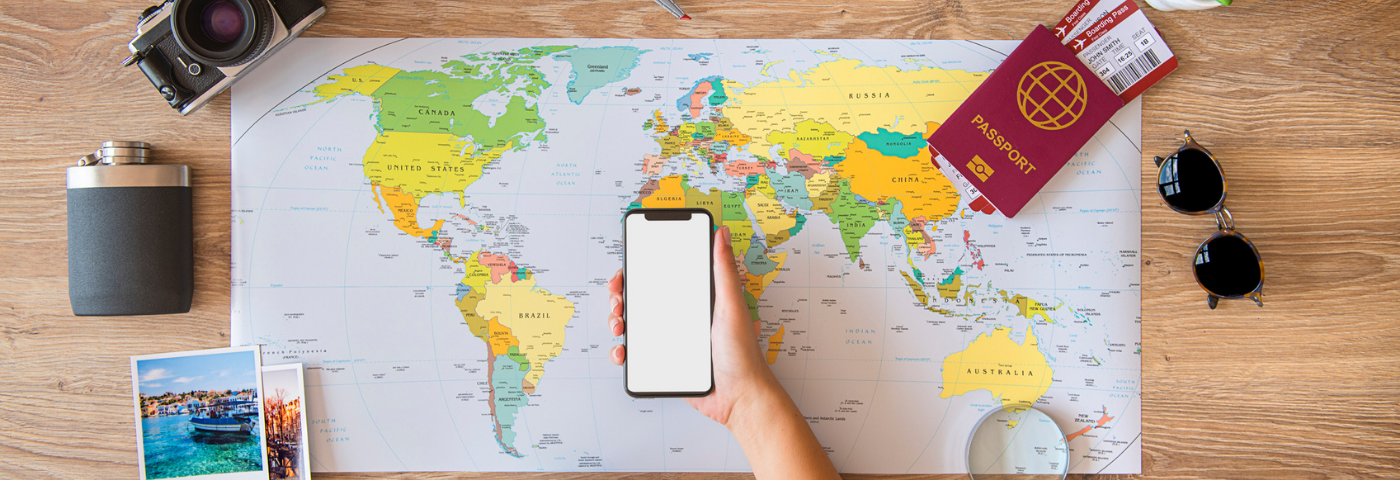*By Marília Borges, consultant at Euromonitor International
The impacts of the COVID-19 pandemic on Brazil’s economy is evident, with the permanent shutdown of players from a myriad of sectors, including services like travel, due to bankruptcy. That leads to a deteriorated labour market, impacting Brazilians’ confidence levels and willingness to spend on non-essential goods and services, such as tourism. For that reason, Brazil-residents revisit their travel plans to make them fit into the former’s contrained budgets, as there is a pent-up demand for leisure and entertainment, caused by the extended period of social distancing and mobility restriction.
Amidst such a long period of social distancing, Brazilians are eager for leisure. In that sense, tourism leverages its aspirational appeal to meet this pent-up demand. However, Brazilians are reluctant to splurge, given the uncertainties that still surround the economic scenario, as well as the increased risk of COVID-19 contamination brought by new variants, such as the delta variant. As a result, Brazilian tourists revisit their travel plans, so as to decrease their average length of stay and avoid agglomeration from crowded attractions and foodservice outlets. Also, short-distance domestic trips are the ones driving the recovery.
In that sense, Brazilians prioritize road transport modes whenever possible, which benefits car rental. Travelling on a private car gives Brazilians a sense of increased control over their travel experience, as they can decide when to leave and when to come back, in addition of accommodating any last minute change of plans.
Lodging drafts a recovery movement starting from the domestic space
Lodging observes Brazil-residents making a similar move towards the domestic space. With Brazilians still facing restrictions to travel abroad, as well as devaluated Brazilian Real making more expensive to plan outbound trips, tourists prioritize travelling in the domestic space away from urban centres. In that context, lodging categories such as resorts are benefitted, as they offer tourists options of outdoors actiivities while providing them with an environment that avoids agglomeration. In that sense, tourists expect accomodation to become the destination itself.
Nature destinations benefit too, as those provide a sense a increased sanitary safety given strict protocols to avoid overturism. As a consequence, concerns about social and environmental impacts of tourism activity emerge in the minds of Brazilians. While choosing destinations away from urban centres, Brazilians look for opportunities to support local economic activities while enjoying the most authentic local experience possible. Staying at small inn or even at a local’s house, as well as hiring services from local agents. As for environmental impacts, Brazilians are increasingly more aware about the importance of the correct garbage dispposal especially when visiting nature destinations.
Intermediaries leverage digitalization beyond its purely transactional nature
Online bookings register strong performance and pave the way to an increasingly digitalized industry. However, Brazilians strongly rely on the in-person experience when making travel reservations. In that sense, the increasing digitalization of Travel comes to enhance travellers experience when booking their trips, rather than to supress store-based transactions. Apart from the transactional nature of the use of digital tools, there are also consumers’ expectations that technology takes on an ever-growing importance in making the travel experience seamless. The ethical use of consumers data to provide them with more assertive product suggestions is already a reality supporting intermediaries to optimize their offer to increasingly demanding clients as tourists move away from commoditized travel packages and embrace the authentic, curated travel experience.
Concerns towards sanitary safety will remain dominant in the short to mid-term
The recovery of tourism in Brazil is tightly linked to the progress of mass vaccination in the country. Also, one of the main immunizers used for mass vaccination in Brazil is Chinese vaccine Coronavac, which made to the list of vaccines approved by WHO, but has not been approved by health authorities in the US and EU yet. Therefore, not only the availability of vaccines but also their international acceptance needs to be factored in when assessing Brazil’s position in global tourism.
Concerns towards sanitary safety will remain relevant over the short to mid-term, with tourists expecting companies to ensure thorough sanitization of high-touch surfaces and social distancing. As a consequence, companies will continue to leverage technology to offer contactless experiences through the travel experience, such as contactless procedures for in-person check-in at airports. Until demand restores to levels comparable to pre-pandemic ones, airlines, intermediaries and lodging players will resort to aggressive pricing strategies to keep consumers spending on a “book now travel later” basis. When demand recovers consistently, prices are expected to gravitate back around levels seen prior to pandemic, with hotels’ occupancy rates and airlines’ load factors retoring to financially sustainable levels.
The opinions expressed in this text are the author’s opinion and do not necessarily reflect the position of WTM Latin America.

